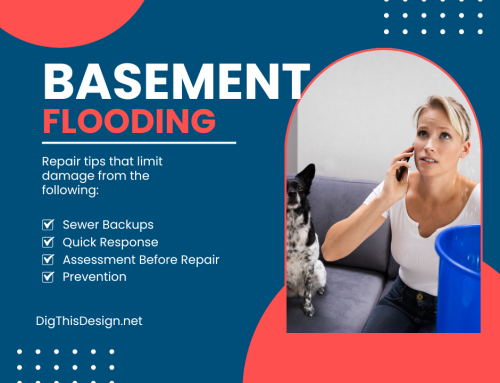Comprehensive roof inspections serve a multifaceted purpose. They are akin to a health check-up for your home’s external protective barrier. Experts meticulously examine the roofing structure for signs of wear, structural integrity, and potential weaknesses. Cautionary measures a qualified roof inspector takes can stave off unexpected repair costs while enhancing the roof’s lifespan and performance. They have the know-how to identify correctly and articulate hazards such as moss and algae growth or cracked caulking, which could compromise the roof’s structural integrity if left unresolved.
Roof Inspections – Homeowners Guide
Roof Inspections Will Identify Common Roof Problems Early
It is essential to have roof inspections like Roofer Vista to catch any issues early on and prevent damage to your home. Common indicators of a roof needing attention include missing, cracked, or curling shingles and rust spots on flashing. Environmental impacts such as sleet, snow, blazing sun, and natural wear often compromise roof conditions. By catching these early symptoms, you safeguard your home against water damage, which can extend to the attic, insulation, and interior ceilings.
The Lifecycle of a Roof: When to Inspect
The expected lifetime of a roof varies, heavily influenced by the roofing materials used and the area’s climate. Standard recommendations suggest that roof inspections should be done at least twice annually. More frequent checks could be warranted in regions subject to extreme weather events. Such a routine can proactively identify damages from harsh winter storms or degradation from prolonged exposure during the summer heat.
Insurance and Roof Inspections: What Homeowners Need to Know
Proper roof inspections should be scheduled and can have favorable implications for homeowners’ insurance. Routine assessments can decrease premiums, prove ongoing maintenance, and expedite claims after inclement weather damages. Roof inspections help maintain a documented history of the roof’s condition, which can be instrumental when handling any claims and ensuring that your policy’s provisions cover the damages sustained.
Navigating the Aftermath of Severe Weather
A roof inspection becomes imperative after a storm or other extreme weather events. Ensuring your roof has weathered the storm without substantial damage can prevent future leaks and structural endangerment. Understanding the fine print of warranties and insurance coverage before disaster strikes empowers homeowners to manage inspections, repairs, or replacements with clarity and efficiency.
The Economics of Roof Inspections: Cost vs. Benefit
Roof inspections are an investment that offers a return in multiple forms. Imminent issues can be nipped in the bud, potentially saving vast sums related to extensive repair work or complete roof replacements. Furthermore, a well-maintained roof can attract potential buyers, increasing the home’s market value. The expense of routine maintenance pales compared to the benefits of an enduring, sturdy roof.
The Role of Technology in Modern Roof Inspections
Technological advancements have recently brought forth a new age for roof inspections. Today, drones with high-resolution cameras can swiftly and safely survey rooftops, providing detailed imagery that helps inspectors pinpoint problem areas. Moreover, thermal imaging technology has advanced to the point where it can detect poorly insulated areas or moisture buildup, thereby averting the associated risks well before they become visible to the naked eye.
Choosing the Right Roof Inspection Service
The importance of enlisting a reputable inspection service cannot be understated. Certifications, industry experience, and positive client testimonials indicate a trustworthy provider. An assured way to assess competency is by querying their familiarity with current technologies and inspection methodologies. A superior inspection service will have the tools, expertise, and customer-centric approach to offer insightful evaluations and actionable recommendations.
DIY Roof Inspection Tips and Safety Measures
While homeowners can perform certain aspects of roof inspections, it’s crucial to approach any DIY inspection cautiously. Equipped with a robust ladder, binoculars, and a detailed checklist, homeowners can conduct a preliminary assessment. However, safety must be the chief concern. Risky ventures onto rooftops should be avoided in favor of professional services, particularly when specialized evaluations or complex repairs are required.
Preventative Maintenance: Building a Durable Roof
The advantages of a proactively maintained roof extend beyond mere longevity. For instance, periodic clearing of gutter debris guards against water buildup that can damage the roof and house foundation. Scheduled trimming of overhanging branches diminishes the risk of physical roof damage and prevents rodents’ access. By devising a maintenance plan informed by the specific needs of their roofing material and environment, homeowners can ensure their roof remains a stalwart defender against the elements for years to come.
In conclusion, comprehensive roof inspections are pivotal in safeguarding your home against various hazards and ensuring its longevity. Acting as a health check-up for your home’s external protective barrier, these inspections are essential for identifying and addressing potential issues before they escalate into costly repairs or compromise the structural integrity of your roof.
By adhering to a regular inspection schedule, homeowners can mitigate risks associated with extreme weather events, navigate insurance claims more efficiently, and potentially decrease premiums. Furthermore, technological advancements have revolutionized the inspection process, allowing for more accurate assessments and proactive maintenance measures.
Whether opting for professional services or conducting a DIY inspection, prioritizing roof maintenance is paramount for building a durable roof that withstands the test of time and preserves the integrity of your home.
Other posts you might enjoy:
Maximizing A Roof’s Lifespan – 4 Professional Roofing Contractor Tips for Success





